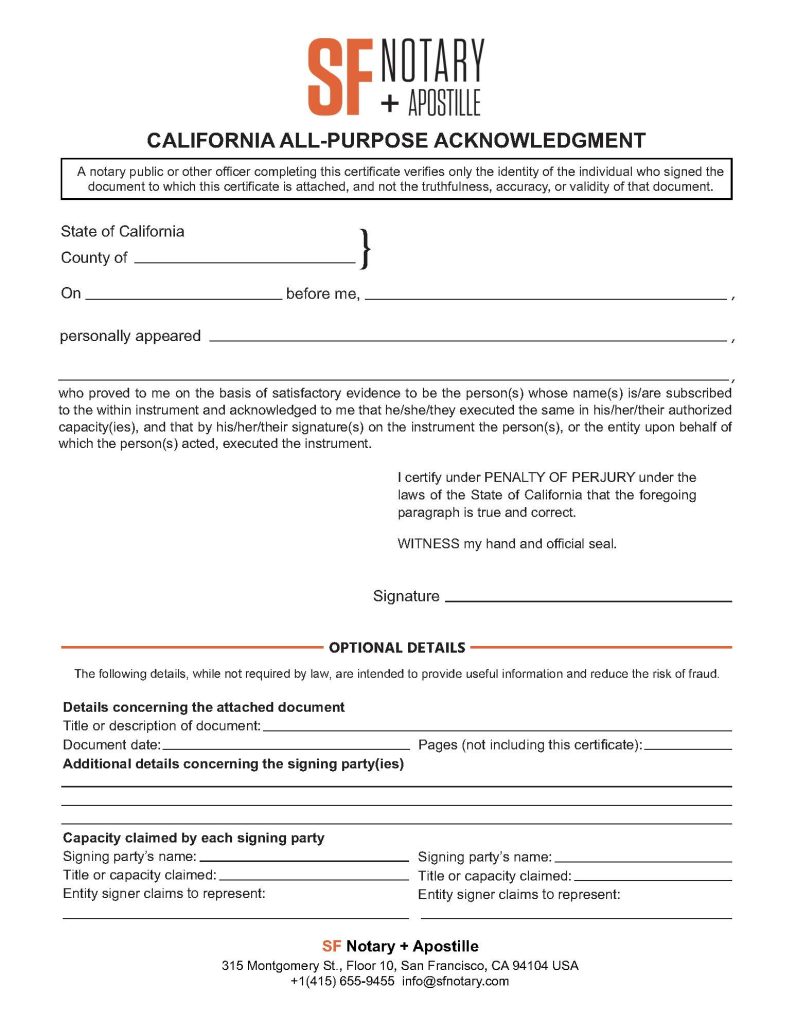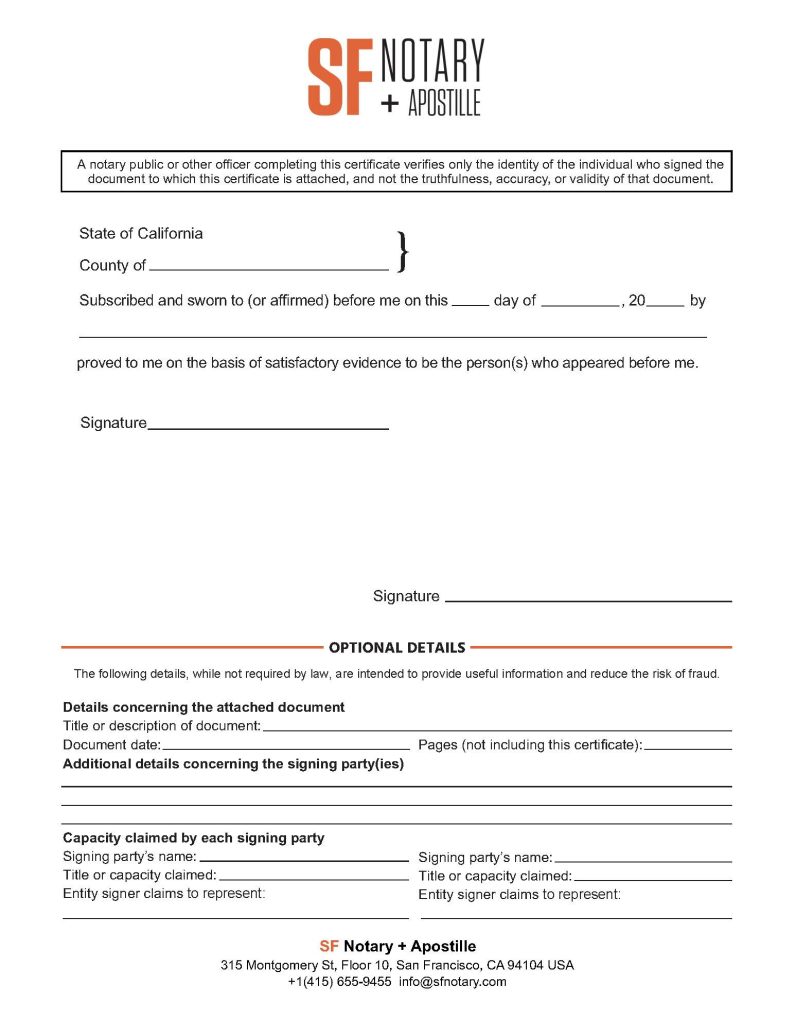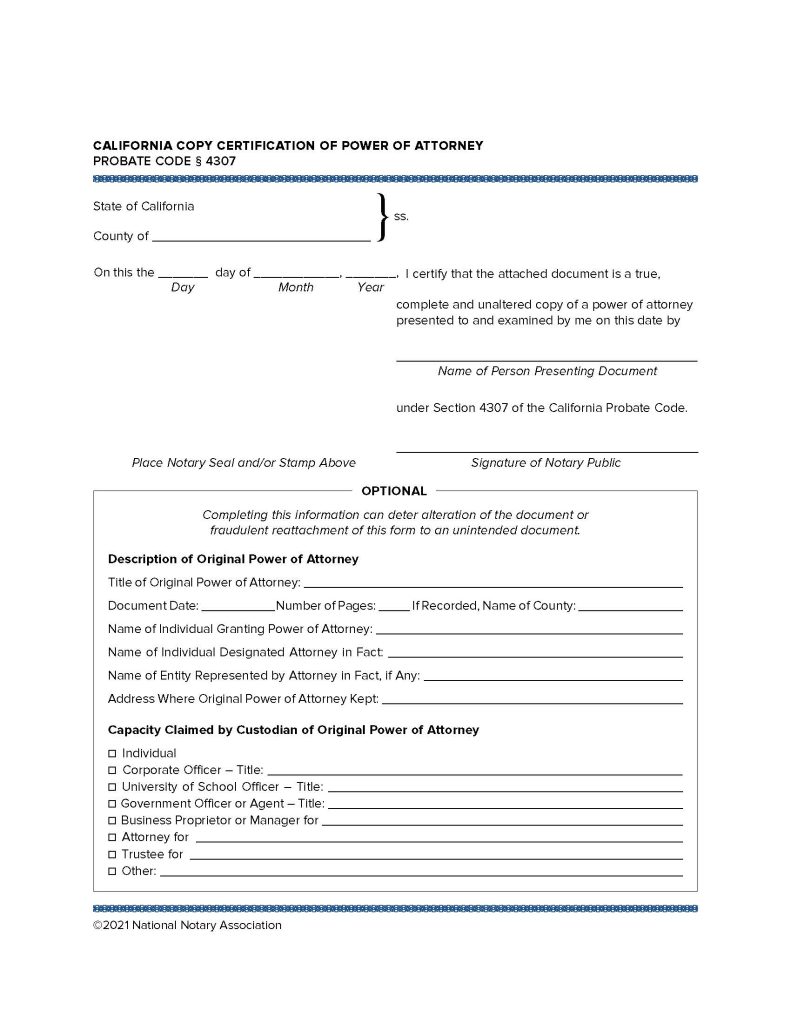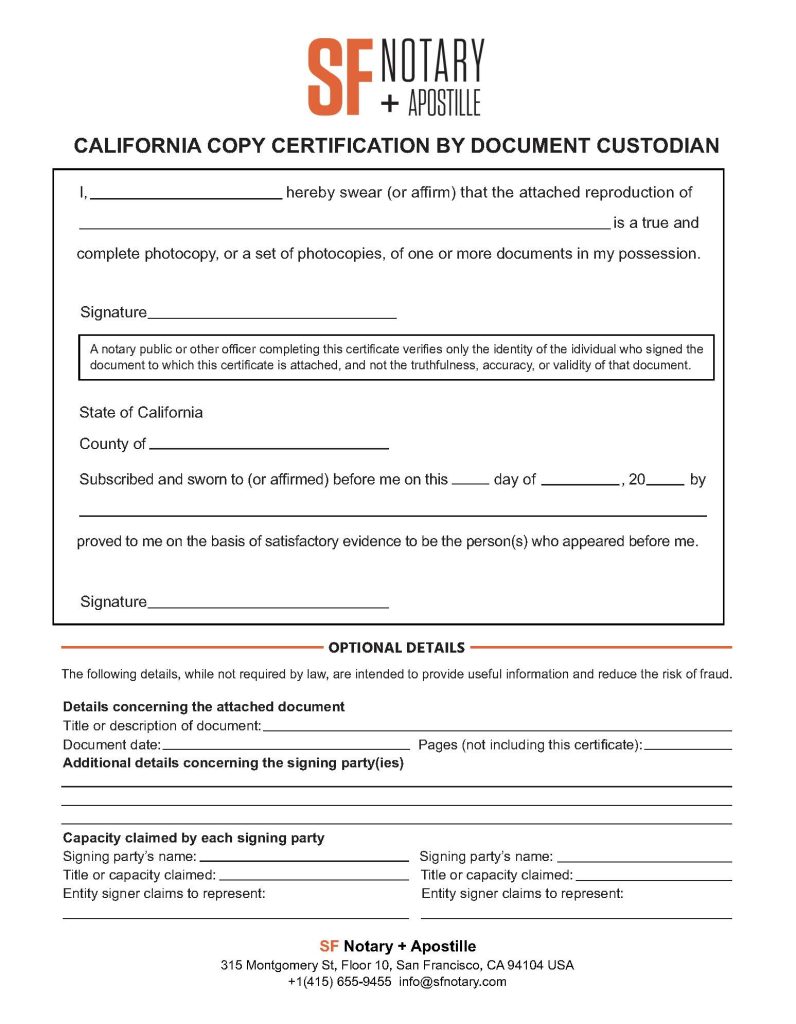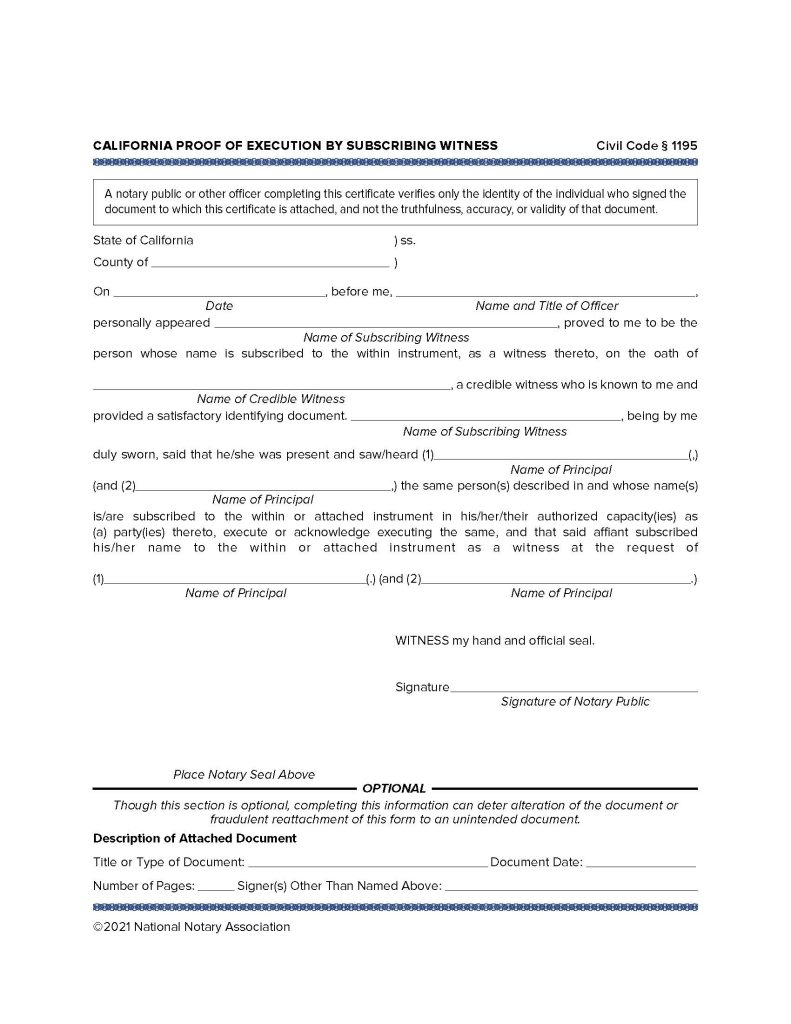What are the different types of notarization in California?
California allows its notaries to perform multiple types of notarization. If you’re getting a document notarized in California, the notary will need to fill out a CA notarial certificate. These are often already attached to the document when you receive it from a lawyer or a title company. But if your document lacks notarial language, your notary will need to attach a notarial certificate.
Choosing Your Type of Notarization
Under California law, the notary is not allowed to choose which kind of notarial certificate you should use. You (or your attorney) must select the certificate from the various kinds allowed under California notary law.
Below are the most common types of California notarial certificates. Examples of each are provided for your reference. Please note that we are not attorneys and do not advocate using any particular notarial certificate. The following information is meant to be a general overview of your choices. If you have questions about which notarial certificate to use, please contact an attorney.
Acknowledgment
In our 20+ years of experience as California notaries, we have found that the Acknowledgment is the most commonly used notarial certificate. It simply states that the signer appeared before the notary on a specific date and in a specific county, that the notary identified the signer, and that the signer acknowledged having signed the document. With this type of notarization, the signer is allowed to sign in advance but must acknowledge to the notary that they signed the document.
Jurat
Another of the types of notarization, the Jurat certificate, indicates that the signer is doing so under oath. Like an Acknowledgment, the Jurat states that the signer appeared before the notary on a specific date and in a specific county, and that the notary identified the signer. But unlike an Acknowledgement, the document must be signed in front of the notary at the time of notarization. In addition, the notary administers an oath or affirmation.
According to the 2024 Notary Public Handbook, there is “no prescribed wording for the oath, but an acceptable oath would be ‘Do you swear or affirm that the statements in this document are true?’ When administering the oath, the signer and notary public traditionally each raise their right hand, but this is not a legal requirement.”
 Copy Certification of Power of Attorney
Copy Certification of Power of Attorney
California law only allows notaries to make a certified copy of one type of document: a power of attorney. The notary must examine the original power of attorney and make the photocopy personally. They may then attach a copy certification stating that on a certain date they examined the original and made a true and correct copy of it. According to the California Notary Handbook, “a certified copy of a power of attorney that has been certified by a notary public has the same force and effect as the original power of attorney.”
Copy Certification by Document Custodian
As noted above, California notaries are only allowed to certify a copy under one limited circumstance. But our clients often receive requests, particularly with documents heading overseas, for copy certifications of things like their driver license, passport, green card, utility bill, or bank records.
While California notaries cannot certify copies of these kinds of documents, the “document custodian” (typically the person whose document copy is being notarized) can attest under oath in front of the notary that the document is a true and complete copy. The notary then attaches the sworn/attested and signed statement, along with a Jurat, to the photocopy in question.
In our experience, this type of copy certification is acceptable for apostille by the CA Secretary of State and is generally accepted by receiving parties in other countries.
Proof of Execution by Subscribing Witness
The final kind of California notarial certificate is used very rarely. In fact, it has only come up a couple of times in all our years of notarizing. Basically, the signer would not need to appear before the notary if a subscribing witness swore or affirmed under oath that they had seen the signer sign the document.
The notary manual lays out two important requirements for this notarial certificate. First, it cannot be used in connection with any real estate transactions. And second, the subscribing witness’s identity “must be established by the oath of a credible witness who personally knows the subscribing witness and who is known personally by the notary public.” Because we’re a mobile notary service and not, say, employees at a bank, it’s quite unlikely that we would personally know anyone who personally knows the subscribing witness.
We include this notarial certificate here because it’s one of the types of notarization allowed under CA law. However, we would be surprised if a client requested it.
I Know Which Type of Notarization I Want. Now What?
Our notaries carry blank notarial certificates with them to appointments. Or you can download a certificate from our website by clicking on the relevant picture. To make an appointment with one of our experienced mobile notaries, please email [email protected] or call +1 (415) 655-9455.

